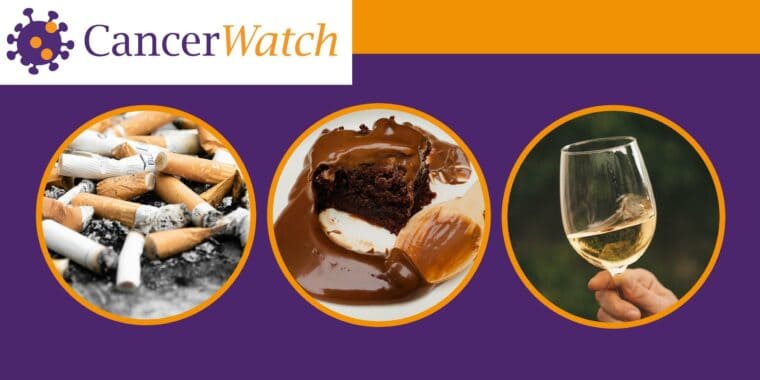
Nearly all of us have been touched by cancer in some way or another. With around 1,000 new cancer cases being diagnosed in the UK every day, many caused by alcohol, it is a disease that casts a long shadow over so many of our lives.
This is why there are an array of dedicated specialist charities and institutions, like CancerWatch, that are focused on fighting cancer, and on tackling the key research, treatment and public health challenges which form part of this struggle.
However, a recent survey and study of many of these organisations highlighted what CancerWatch believes could be a relative weakness in our collective fight against cancer: a lack of attention on preventing cancer in the first place.
CancerWatch’s review of the work of cancer charities found that campaigning work across the sector had a strong focus on improving screening, diagnosis and healthcare services for people with cancer, but notably, campaigning on the prevention of cancer was relatively weaker. While many cancer charities clearly viewed cancer prevention as important and did talk about it, few actively campaigned on the ‘root causes’ of preventable cancer – including alcohol, smoking and obesity.
Alcohol is a risk factor for seven different types of cancer and is one of the biggest risk factors for breast cancer. The World Health Organisation classes alcohol as a Group 1 carcinogen and all deaths from cancer caused by alcohol can be considered preventable. In fact, the evidence suggests that modifiable risk factors such as alcohol (as well as others such as smoking and obesity) are responsible for an incredible 40% of all cancer cases. Given this, CancerWatch believes the charity sector as a whole could be punching below its weight on this hugely important aspect of tackling cancer.
The survey asked respondents to rate different types of policy intervention for cancer prevention. Responses showed a strong preference for ‘Advising, informing and encouraging people to make healthier choices’. This individualised approach to cancer prevention is the approach that is currently most heavily utilised by charities. There was least support for ‘Further restricting personal freedoms’.
This is a surprising finding, for two reasons. Firstly, many charities know only too well that the root causes of preventable cancer are often the result of structural issues rather than individual ‘choice’ – for example, the accessibility or pricing of alcohol or tobacco products, the addictive nature of substances, the availability or otherwise of healthcare support for addictions, the relative cheapness of unhealthy foods compared to healthy ones, and a whole range of socio-economic factors. It is usually not enough to simply say to people who are struggling with alcohol, smoking or food usage that it is about making different ‘choices’.
It is also surprising given the strong support policymakers have shown recently for taking legislative action to restrict people’s freedoms in the interest of health, namely the support among MPs for the Tobacco and Vapes Bill, which has since fallen only due to the calling of the General Election. We believe that stronger measures to reduce alcohol harm could also gain support from MPs if the public health case is convincingly made. Yet charities remain timid about calling on politicians to deliver policies which involve any restriction of freedoms.
There was, however, strong support in our survey for ‘Deployment of public health and/or prevention-focused healthcare services’ and equally strong support for ‘Incentives for businesses to adjust their products to be healthier’. There is clearly much structural change that can be undertaken in the areas of public health deployment and business incentives which could make a huge difference to cancer prevention.
An obvious, and vital, next step is the proper labelling of alcohol products. It is absurd that consumers get more information about the health implications for a bottle of orange juice than a bottle of wine. Consumer awareness of the link between alcohol and cancer is very poor, and better transparency is vital. Ireland have already taken action on mandatory alcohol labelling and the UK should follow in its footsteps, the sooner the better.
Mandatory comprehensive alcohol labelling forms part of the CancerWatch Manifesto for Cancer Prevention. This calls on all candidates in the General Election to embrace a new national mission to minimise and eventually eliminate preventable cancer in the UK. It contains key recommendations to tackle some of the biggest causes of preventable cancer – excessive alcohol use, smoking and poor diet – with the types of policy interventions that are most supported.
CancerWatch works with all charities and organisations who have an interest in advancing the cause of cancer prevention, focusing particularly on the structural changes that are needed and not letting policy-makers off the hook by pinning the underlying causes down to ‘personal choice’.
You can read more about CancerWatch, their survey of the sector’s work, and Manifesto on their website.
All IAS Blogposts are published with the permission of the author. The views expressed are solely the author’s own and do not necessarily represent the views of the Institute of Alcohol Studies.
